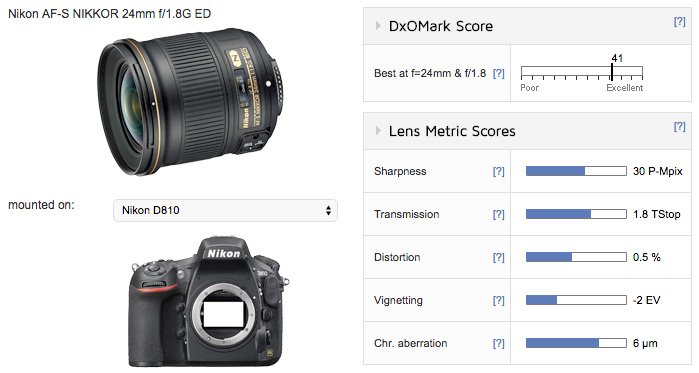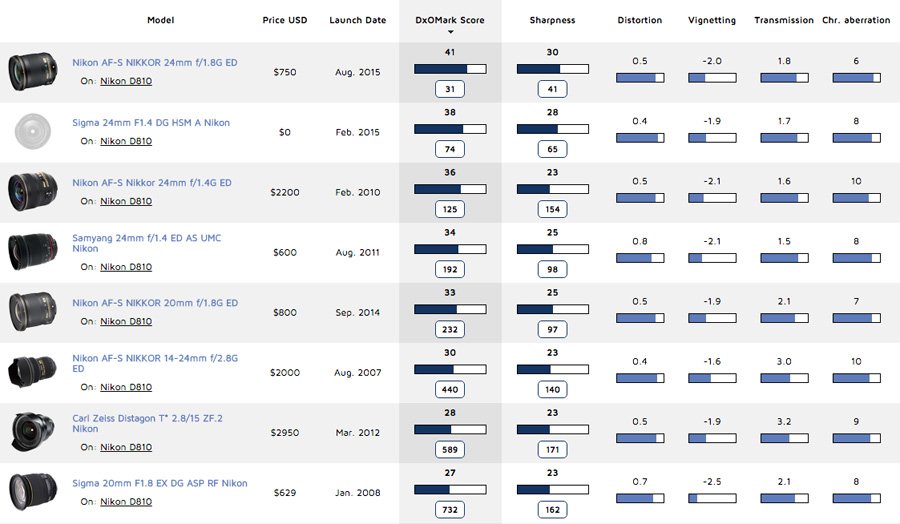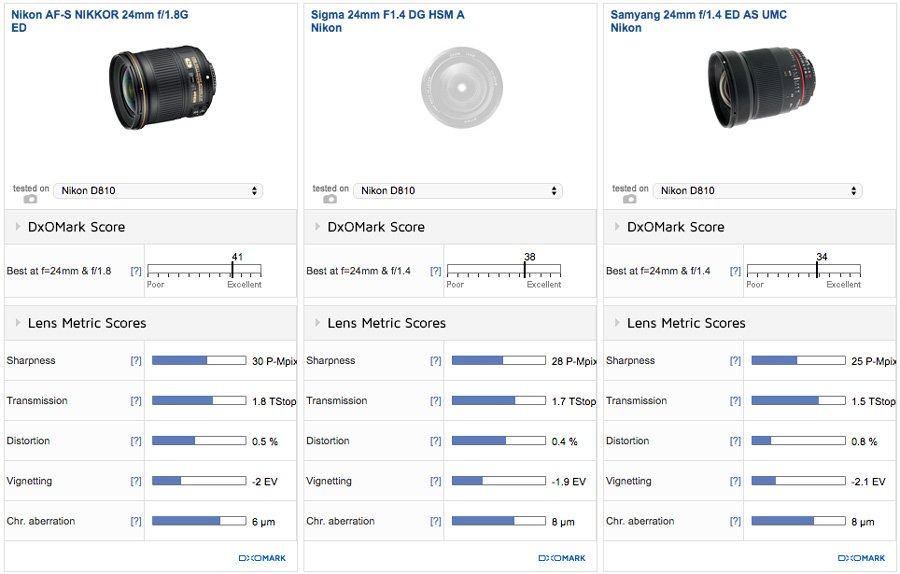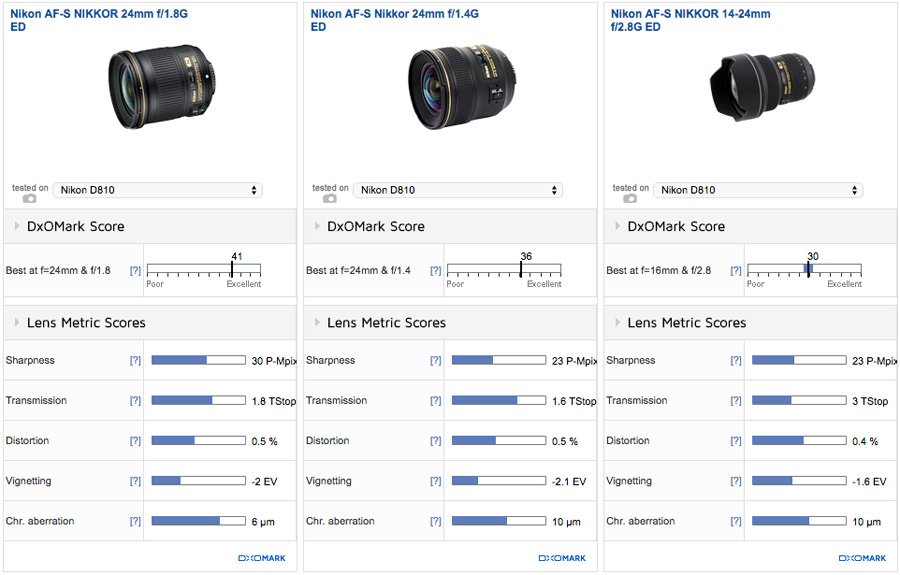Nikon AF-S NIKKOR 24mm f/1.8G ED Lens Review at DxOMark: “Superb”
DxOMark published their test results for the Nikon AF-S NIKKOR 24mm f/1.8G ED Lens ($746.95 at Amazon, B&H, Adorama.): The NIKKOR 24mm f/1.8G ED Lens is a “Superb 24mm option for Nikon” and it is a “High-quality wide-angle lens for landscape and architecture photography”.
Tested on a Nikon D810, the new Nikon 24mm f/1.8G achieves an outstanding overall DxOMark score of 41 points. That puts it into the top ten (8th place, in fact) for all lenses tested on the D810, which is pretty impressive for a wide-angle optic.
Counting all lenses up to 35mm, the Nikon 24mm f/1.8G ranks in second place, only a single point behind the Sigma 35mm f/1.4 with 42 points. For the type of 15mm to 24mm wide-angle lenses preferred for much landscape or architecture work, however, the new Nikon 24mm f/1.8G is out on top, achieving the best sharpness and chromatic aberration scores, with other lens metrics comparable to its wide-angle rivals.
Nikon 24mm f/1.8G vs Sigma 24mm f/1.4 vs Samyang 24mm f/1.4
If you need a wide-angle prime for low-light photography, the extra stop of light that the Samyang and Sigma allow will appeal, but the Nikon is clearly sharper at all aperture settings between f/1.8 – f/16. With a narrower maximum aperture, the Nikon 24mm f/1.8G also has a slighter weaker transmission figure, but not by much, and the Nikon 24mm f/1.8G actually maximizes its maximum aperture transmission compared to its f/1.4 rivals that lose a little light. Distortion is comparable to the Sigma 24mm and an improvement over the Samyang equivalent, too, with only minor barrel distortion evident; all three lenses have vignetting around 2 stops using the widest aperture.
Nikon 24mm f/1.8G vs Nikon 24mm f/1.4 vs Nikon 14-24mm f/2.8G
At f/2, the f/1.8G version is slightly sharper in the center of the frame compared to the f/1.4G version, with both having similar resolution in the corners at this setting. At f/2.8, both primes are far sharper and more homogenous than the wide-angle zoom at 24mm. While all three Nikkor lenses are homogenous at f/11, the 24mm f/1.8G is the sharpest overall. Finally, Nikon has obviously paid particular attention to lateral chromatic aberration on the f/1.8G version, which is improved at all aperture settings compared to the f/1.4G version.
For Nikon shooters after a top-end wide-angle lens for high-quality architecture, landscape, and interior shots, or just to fit a bit more in the frame, there’s everything to like about the new Nikon 24mm f/1.8G. Affordable and outstanding optically, it’s in the top ten for all lenses tested on the D810, as well as being the sharpest 24mm wide-angle tested to date on this camera. Not only that, it boasts better chromatic aberration results and similar other lens metric scores when compared to the 24mm f/1.4 competition from Sigma and Samyang. If you need the f/1.4 maximum aperture for low-light work, the Sigma 24mm f/1.4 is a better value than Nikon’s own-brand 24mm f/1.4G option, but both are surpassed optically by the brilliant Nikon 24mm f/1.8G.
Note: If you are a Nikon User, you can now join the Nikon Camera Users Facebook Group to share your Nikon photography and advice, ask and answer questions that arise and help each others!
Nikon Camera Users: https://www.facebook.com/groups/NikonCameraUsers



